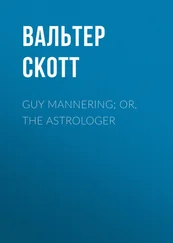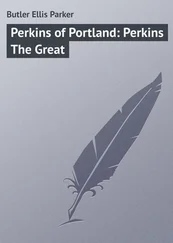“Ja, Herr Schellenberg.”
“And the other one…?” Schellenberg asked while looking around. “There were two infiltrators seen.”
One of the soldiers pointed his rifle at the lifeless body of Sergeant Stephen F. Riley, still lying on his stomach. The dead 22 year old had his eyes still open and a pool of blood was still forming around his head.
“Well,” Schellenberg spoke perfect English, “it seems we have some matters to discuss , don’t we?”
“That we may, general. Now ’ow about that cigarette?”
“In good time, Captain , in good time.” Schellenberg’s stressing Payne’s rank was disturbing. It suggested he already knew everything about the two British infiltrators and their mission. Payne’s mind began racing through every possible person involved his getting here to determine the traitor or double agent.
“Call Schartz,” Schellenberg snapped to a Lieutenant, “tell them we will be there shortly and make sure everything is ready for our guest .” Again a hint they were expecting Payne.
“Jawohl!”
Schellenberg then looked around the landscape with a beam of satisfaction.
“I believe our work is finished here.”
* * *
“…the 16 thCentury text in front of him”
“Coincidence?” Goebbels grabbed the paper back. “Nein, nein! Look at the year when you add up the figures he gave… it comes up to 1939!”
“It is truly amazing…” Bettina remarked while gliding around the desk, “that anyone who lived so long ago could see the beginning of this war so clearly.” Her stress on the word ‘beginning’ was put with the hope he would share with her what he must have know if he had the beginning: the prediction for the end of this war. But her boss either did not see, or did not want to take the hint and instead changed the subject.
“Do you have a ride home?”
“Yes, thank-you.” The question told her several things: one, he would not be driving her home tonight, two, he was tired, and three, he was tired of her.
Bettina still wanted to know what the prediction said as to when the war was supposedly going to end, so she threw out a more direct hint.
“Herr Minister,” she whispered while walking to the chair to get her sweater, “if Herr Nostradamus was so precise in seeing the start of the war, do you think the year he gave as the end of the war will also be accurate?” She hoped asking this while slipping back into her sweater in a sexy fashion would make the question at least appear intimate. Secret information not shared with generals sometimes was shared with a secret lover; after all, she already knew many of the things kept from the German High Command as well as lurid details even the highest members of the Nazi Party did not know.
“That might be…” Goebbels eyes were now engulfed in another document before him. The distance in his voice revealed he was not really listening to her and she was finished for the day – and night.
Bettina now had her sweater on and was holding the papers she would have reading for tomorrow’s meeting.
“Will there be anything else, Herr Minister?”
She stood and spoke with the same professional manner as she usually did during the day, when the office was filled with a steady stream of Nazi personnel, generals, informants, and other assorted dignitaries and visitors.
“Nein, Fraulein.”
“Then goodnight, Herr Minister.”
Bettina left the room without realizing some of the very files she was holding had the answer to her questions.
Goebbels did not look up as Bettina went through the huge double doors. His mind was on the 16 thCentury text in front of him:
Sept fois changer verrez gent Britiannique,
Taintz en sang deux, nonnte an,
Franche non point par appuy Germanique,
Aries double son pole Bastarnan.
(Actual Nostradamus verse, translated:)
During the course of 290 years,
Britain would change its ruling dynasty seven times. (It did.)
Then, Aries ( war ) will come between Germany and another Germanic tribe,
The Bastarnan (a tribe living east of the Oder River, present day Poland),
Who will be protected by Britain. (Poland did have a treaty with Britain)
- Nostradamus, Century III, Quatrain 57
Author’s note: when 290 years are added to the planetary aspects Nostradamus spoke of in the year 1649, one would arrive at the year 1939 – the actual year war broke out between Germany & Poland.
* * *
“Ready?”
His deep, dark set eyes were what most people who met Karl Ernst remembered him by. It is also what attracted his wife to him.
“The train leaves at 15:30.”
Their inner understanding existed at the moment of their first meeting in Prague. From that moment on, what little conversation they had was simply to relay what changes the outside world would have on them, and what they would do to adapt to it. The inner matters were already understood, lifetimes ago.
“Dagmar’s son will watch the house and take care of the plants.”
“Herr Zimmerman will forward the mail to the Kaiserhoff.”
Grandmother Krafft thought there was something about Elaine that reminded her of Krafft’s departed sister, even though the two by appearance were completely different. The spiritual connection was so strong, it nearly destroyed any unpredictable actions necessary in keeping a husband-wife relationship from becoming routine. Sensing his impulse to buy her a flower eliminated any sort of surprise for Elaine, even though such deeds were appreciated.
“Ready?”
“Ready.” The question was more out of politeness than actually wishing to know. In 5 hours after receiving the telegram requesting their presence in the Ministry of Propaganda, the Kraffts were on their way to Berlin.
* * *
“…a play that the Führer himself applauded.”
“Have you read today’s Der Zeit ?” Von Wohl answered Countess’s question with a question, something he learned from his mother.
“Yes…?” The Countess did read the paper, but apparently did not see or remember the article and photo about Von Wohl and his new play. Noticing his attempt did not work, he quickly tried to cover this failure with an extension of the same method.
“Perhaps you saw the critics review about the play, Der Knoddel-Brot ?”
“No… should I have?”
Von Wohl saw the questioning game was over.
“Well, if you really wanted to see exactly what I do, then I must find a copy so you may read it. The paper described my work far better than I ever could.” Von Wohl ended this statement with a muffled laugh. “If the review intrigues you, then perhaps I could personally show you what I do with an invitation to a play that the Führer himself applauded.
“So, you are an actor ?”
“No, madam… playwright.” Von Wohl bowed deeply, acting as if to apologize for this statement.
“Well, if you are a writer …” The Countess notices her husband coming, yet pretended not to see him, “…then you should meet my son, Baron Harals Keun. I think his profession will interest you… he’s an astrologer !”
After saying the word ‘astrologer’, the Countess turns to look at her husband as if to suddenly notice him. She wanted to see the Count hide his shame – to be reminded, which she did at every opportunity, that his only son had taken up such a disrespectful career, in his opinion. “Oh…!” She exaggerated her surprise, “I thought you had left with the Rumanian military attaché!”
Читать дальше
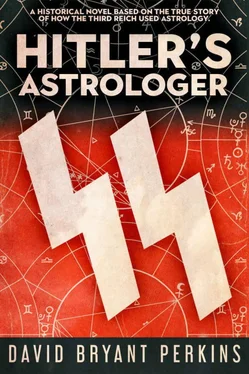

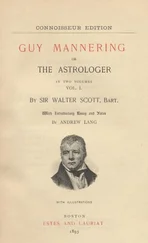
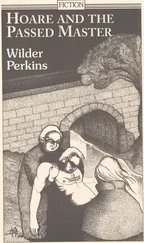


![Traudl Junge - Hitler's Last Secretary - A Firsthand Account of Life with Hitler [aka Until the Final Hour]](/books/416681/traudl-junge-hitler-s-last-secretary-a-firsthand-thumb.webp)




